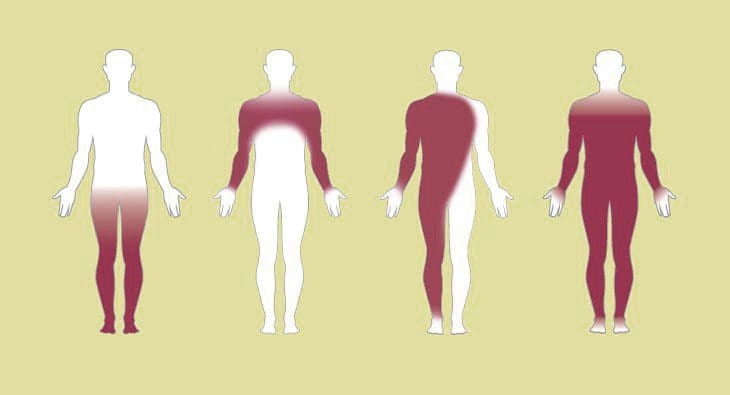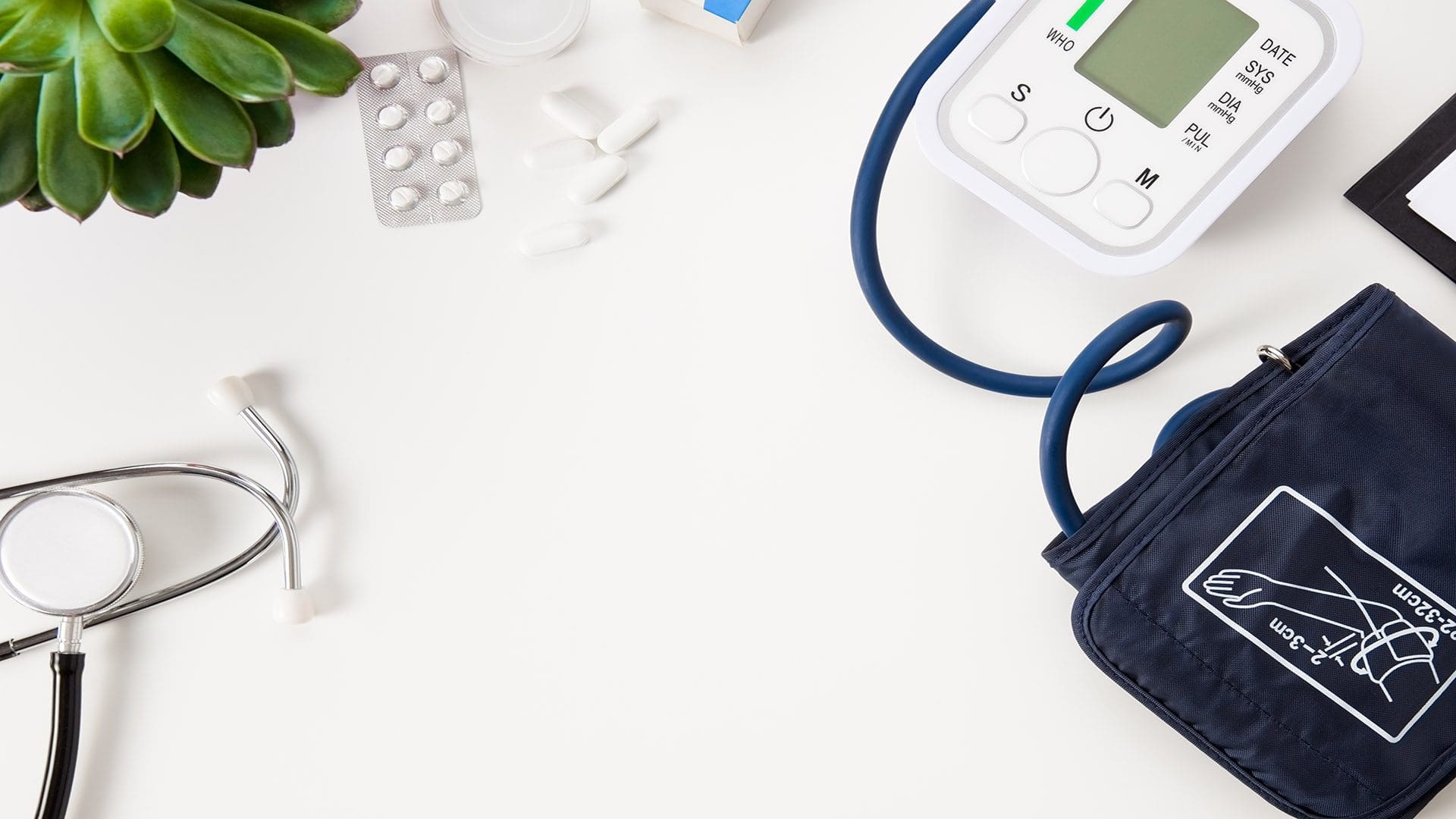When it comes to body composition analysis and body composition testing, most tend to think about muscle mass and body fat percentages. However, today’s medical BIA (bioelectrical impedance analysis) equipment does a lot more than that.
Body fat percentages are only a small part of a body composition analysis. For body composition equipment utilizing Direct Segmental Multi Frequency-BIA technology (DSM-BIA), means that you are able to measure and monitor other valuable indicators of your health such as visceral fat, body water, segmental readings, and phase angle values.
Table of Contents
What’s Phase Angle ?
- Phase Angle or PhA allows us to see how the body is responding to changes in health – good or bad.
- For example, people with cancer or who are malnourished have low PhA’s.
- PhA decreases with age. This is due to the body’s slowed down capacity to repair cells quickly.
- When ill, the Phase Angle goes down
- When healthy the Phase Angle goes up.
- When you boost your Phase Angle, aging slows down.
Solving The Riddle of Phase Angle
- PhA is a direct measurement of cell integrity and the distribution of water inside and outside the cell membrane.
How Do You Measure Phase Angle?

- In healthy humans, the cell membrane is made of a layer of non-conductive (insulator) lipid material that’s between two layers of conductive fluids (the body’s water).
- Two conducting materials that surround an insulator are often referred to as a capacitor.
- The cell membrane is a fortress with capacitor capabilities that prevent currents from entering the cells and other unwanted materials, e.g., toxins and waste.
- This means healthy cells/tough capacitors better prevent unwanted substances from entering.
In Bioelectrical Impedance Analysis (BIA)
- PhA means the relationship between resistance and reactance.
- This falls into lean body mass and body cell mass
- Lean Body Mass (LBM) is the total weight of the body’s organs, skin, bones, body H2O, and muscles.
- Describes the entire body weight minus body fat.
- Also referred to Fat-free mass.
Resistance/Reactance/Impedance
- Resistance is when a conductor transfers the energy of an electric current.
- Greater the conductor, lower the resistance.
- Low resistance/associated with large LBM.
- High resistance/associated with low LBM.
- A person that has large lean body mass, has a lot of body water, which means greater conductivity of the current and less overall resistance.
- Reactance measures the cells’ ability to store energy.
- The body has high reactance if the cells can store energy easily and
has low reactance if it stores energy poorly. - Healthy cells with healthy cellular membranes hold the electrical energy charge longer.
- Impedance is the sum of resistance and reactance.
- Measuring PhA and cell health can be done with a Bioelectrical impedance device, which assess cell membrane health.
- To measure impedance a small alternating current is run into the body, which then measures the effects on the current caused by the body.
- 50 KHz is considered ideal to maximize reactance and determine the point where the strongest cells resist the current.
- As current travels through your body, the body’s water will naturally resist the flow of the current and this is referred to as resistance.
- When current encounters a cell, the cell wall causes a delay, as the voltage builds up, in order to pass through the cell wall while the current continues
instantan tly.
- This brief time delay, which is caused by the cells is compared to the amount of water, which provides us with a PhA.
- Impedance is a combination of these two values.
Phase Angle and Overall Health

Tracking your PhA, allows you to gain a more precise picture of your health, as it examines cell health/integrity and the amount of water inside.
- Higher PhA values mean greater cellular integrity and reflect better cell health.
- Low PhA, is predictive of decreased muscle strength, compromised quality of life, and an increased mortality in older adults with cancer.
- Low phase angles are consistent in individuals with malnutrition, HIV/AIDS, cancer, and chronic alcoholism.
How To Know If My PhA Is Normal?
Certain factors can influence PhA such as (Age, Gender, BMI) but there are differences in PhA’s across different populations. Which means that PhA values tend to differ based on the BIA equipment being used.
Example of a Phase Angle Reading Utilizing The InBody 770:

What everyone needs to know is that phase angle depends on the individual makeup of everyone.
The Connection Between My Body’s Composition & Phase Angle
- Improving body composition helps increase phase angle.
- Improving body composition through nutrition, exercise or both.
Lifestyle Factors That Can Impact Phase Angle are:
- Exposure to toxins
- Eating processed food
- Not getting enough sleep
- Stress of all types (Emotional, Physical, Mental)
- Not enough exercise or physical activity
- Excess of caffeine, alcohol, sugars
Phase Angle Increase May Result From:
- Muscle mass gain
- Inflammation reduction along with body fat reduction
Phase Angle Decrease May Result From:
- Muscle tissue loss
- Increased inflammation
Phase Angle In A Clinical Practice
A study, monitoring PhA values in a hospital setting found that it helped identify nutritionally at-risk patients quickly, thus saving the staff time, as the patients did not have to answer the in-depth nutritional questions. Instead, they took a quick BIA.
Phase Angle Takeaway
- PhA values can be highly informative of what is going on in one’s body.
- PhA can help in identifying health risks/issues
- Track lifestyle change progress
- Medical Clinics can use PhA to help create custom treatment and health care plans
Post Disclaimer
Professional Scope of Practice *
The information on this blog site is not intended to replace a one-on-one relationship with a qualified healthcare professional or licensed physician and is not medical advice. We encourage you to make healthcare decisions based on your research and partnership with a qualified healthcare professional.
Blog Information & Scope Discussions
Our information scope is limited to Chiropractic, musculoskeletal, physical medicines, wellness, contributing etiological viscerosomatic disturbances within clinical presentations, associated somatovisceral reflex clinical dynamics, subluxation complexes, sensitive health issues, and/or functional medicine articles, topics, and discussions.
We provide and present clinical collaboration with specialists from various disciplines. Each specialist is governed by their professional scope of practice and their jurisdiction of licensure. We use functional health & wellness protocols to treat and support care for the injuries or disorders of the musculoskeletal system.
Our videos, posts, topics, subjects, and insights cover clinical matters, issues, and topics that relate to and directly or indirectly support our clinical scope of practice.*
Our office has reasonably attempted to provide supportive citations and has identified the relevant research studies or studies supporting our posts. We provide copies of supporting research studies that are available to regulatory boards and the public upon request.
We understand that we cover matters that require an additional explanation of how they may assist in a particular care plan or treatment protocol; therefore, to discuss the subject matter above further, please feel free to ask Dr. Alex Jimenez, DC, or contact us at 915-850-0900.
We are here to help you and your family.
Blessings
Dr. Alex Jimenez DC, MS-FNP, MSACP, RN*, CCST, IFMCP*, CIFM*, ATN*
email: coach@elpasofunctionalmedicine.com
Licensed as a Doctor of Chiropractic (DC) in Texas & New Mexico*
Texas DC License # TX5807, New Mexico DC License # NM-DC2182
Licensed as a Registered Nurse (RN*) in Florida
Florida License RN License # RN9617241 (Control No. 3558029)
Compact Status: Multi-State License: Authorized to Practice in 40 States*
Graduate with Honors: ICHS: MSN-FNP (Family Nurse Practitioner Program)
Degree Granted. Masters in Family Practice MSN Diploma (Cum Laude)
Dr. Alex Jimenez DC, MSACP, MSN-FNP, RN* CIFM*, IFMCP*, ATN*, CCST
My Digital Business Card


